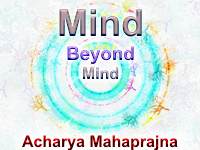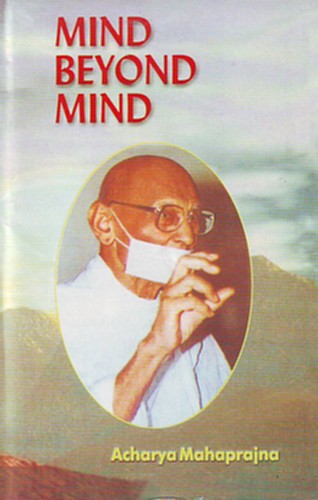
A Chinese emperor once called a practitioner of meditation and requested him to give him some instruction. The emperor and the practitioner sat facing each other. The emperor sat expecting his instructor to speak some thing, but the latter sat completely silent to the growing annoyance of the former. Fed up with a fruitless expectation, the emperor broke the silence and said, "Sir, I had called you here to give me instruction in meditation, but you continue to be silent. Why don't you speak?" The emperor's minister in waiting, who knew what meditation meant, intervened, and remarked, "Your Majesty, the instruction is over." The practitioner got up and departed.
I too would have liked to be silent. Whatever I have to say would have been said better by my silence. The same thing applies to hearing also. Whatever you like to hear would be heard better if the person whom you want to hear observed complete silence instead of speaking. Language is the greatest problem for us. The writer of the Niryukti (a Jain Commentary) has made a very significant observation in this connection, "He whose mind is not a victim of uncertainties does not speak even when he is speaking; He whose mind is a victim of uncertainties does speak even when he does not actually speak."
We can arrive at a state of thoughtlessness only after we have abandoned the mind. So far as the mind is active you cannot attain a state of thoughtlessness. Thinking is a great hindrance in thoughtless meditation. The mind goes on moving from one word to another, from one idea to another and from one thought process to another. It remains active even when it is being concentrated. The activities of the mind are so subtle that they mislead us to think that it has ceased to think. The fact is that in a state of concentration the mind is active with reference to a single subject only and that is why we are misled to believe that it has become concentrated. It is only the negation of the fickleness of the mind, a temporary absence of mental activity. You cannot think, howsoever little the thinking may be, and concentrate at the same time. The two cannot go together. A thoughtless state of mind will necessarily follow as soon as mental activity has really ceased. A thoughtless state of the mind is the only natural state of the mind.
Thoughtless meditation means planting the mind into its natural state or into pure consciousness. It implies pure knowledge and nothing else. Thoughtlessness means clear and clean knowledge. It is pure comprehension or pure and direct perception. In this sense any one can attain Kevala Jnana even today. We should not think that the age of Kevala Jnanis is over. If people could attain Kevala Jnana in the past, there is no reason why we too may not attain it today. As soon as the wanderings of the mind are over and it has merged into the soul, mental activities come to be replaced by spiritual activities. Kevala Jnana is not intellectual, but spiritual knowledge.
The epithet Kevala has three meanings:
- solitary
- pure
- perfect
When knowledge is accompanied by Samvedana (feeling), it does not remain solitary, pure, or perfect. It becomes pure only when it is severed from feeling. Pure knowledge is the activity of the soul. Rescued from feeling, the soul begins to shine in its native light. It becomes perfect. The state of thoughtlessness is a state of Upayoga, which means the innate activity of the soul or consciousness. In such a state all the feelings and sensations come to an end.
There is a story in the Puranas. There was a saint. Thousands of people came to see him. There are no restrictions on visitors to saints. Even mischievous people come to them. One day a mischievous person came there. He had come with the sole aim of annoying the saint. He asked several impertinent questions. The saint replied to all the questions with a composed mind for some time, but when the questioner persisted in his mischief, the saint became annoyed and scolded him. He even angrily asked him to go away. When he refused he was pushed out. It is said that God visited the saint in the night and said: "You shouldn't have turned the man out." When the saint explained the reason for having done so God retorted, "Look here if I have allowed all kinds of persons including even the scoundrels to live in my world, you should have tried to accommodate the mischievous man." The saint replied, "You are pure in heart, and therefore, you can allow all kinds of persons to live in your world, but I am not pure like you." When the heart is pure, there are no mental reservations. Only a defiled consciousness makes exceptions and discriminations. In a state of pure consciousness one does not make a distinction between happiness and misery. Good and bad, friends and enemies, life and death are one and the same thing in a state of equanimity. The Gita defines Yoga as a state of equanimity, which is the culmination of spiritual exertion and free from all kinds of dualism.
 Acharya Mahaprajna
Acharya Mahaprajna

